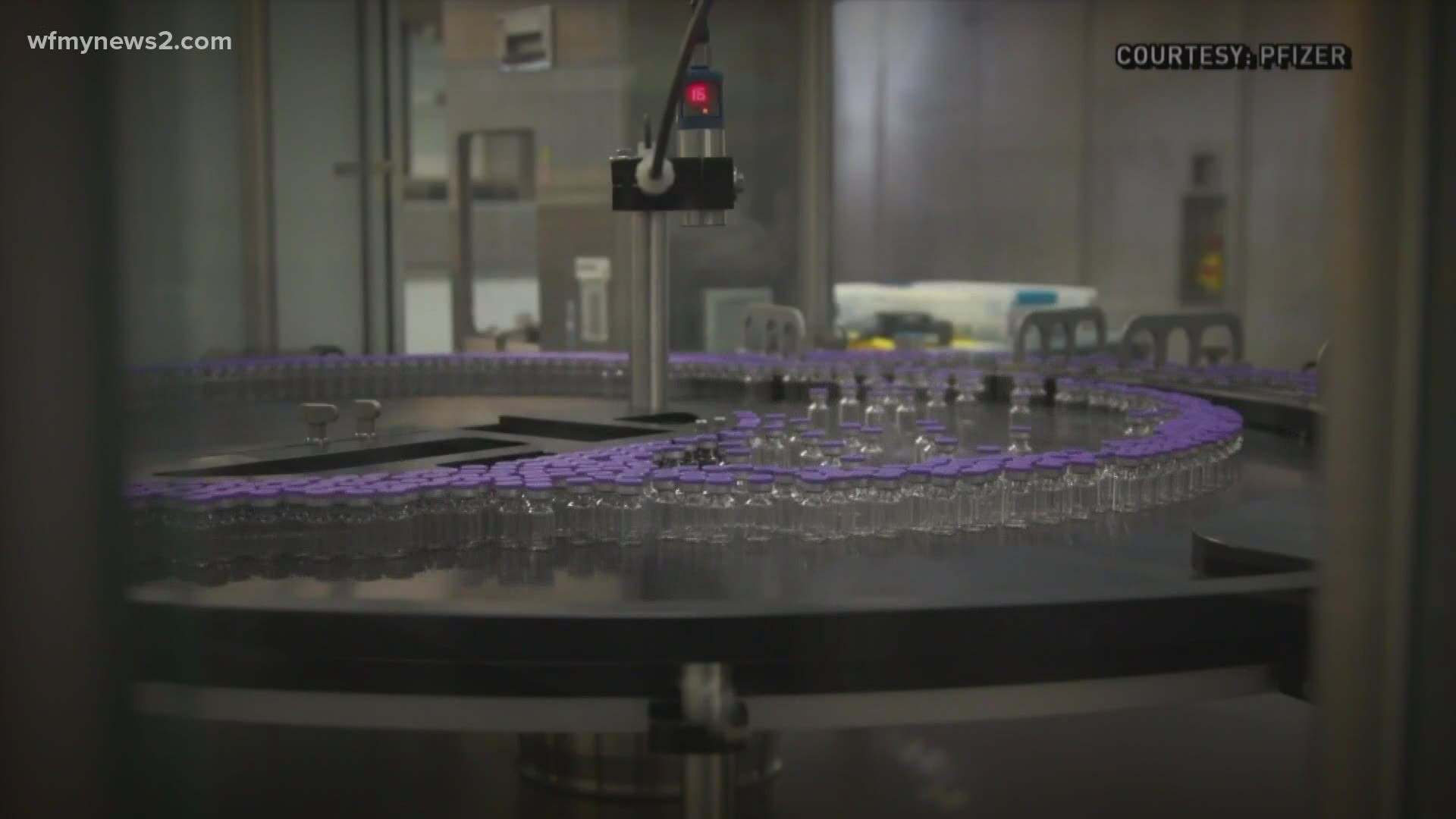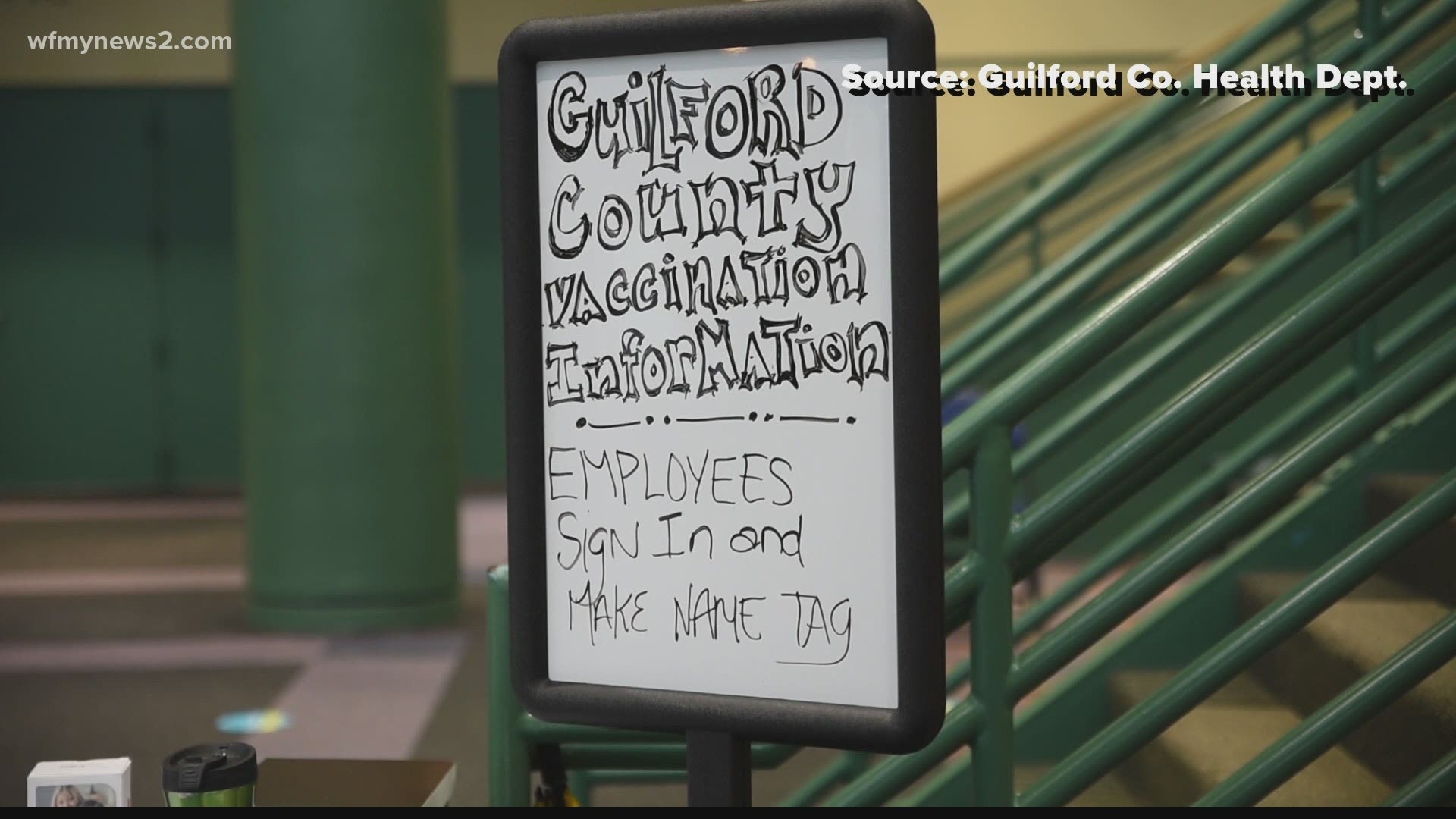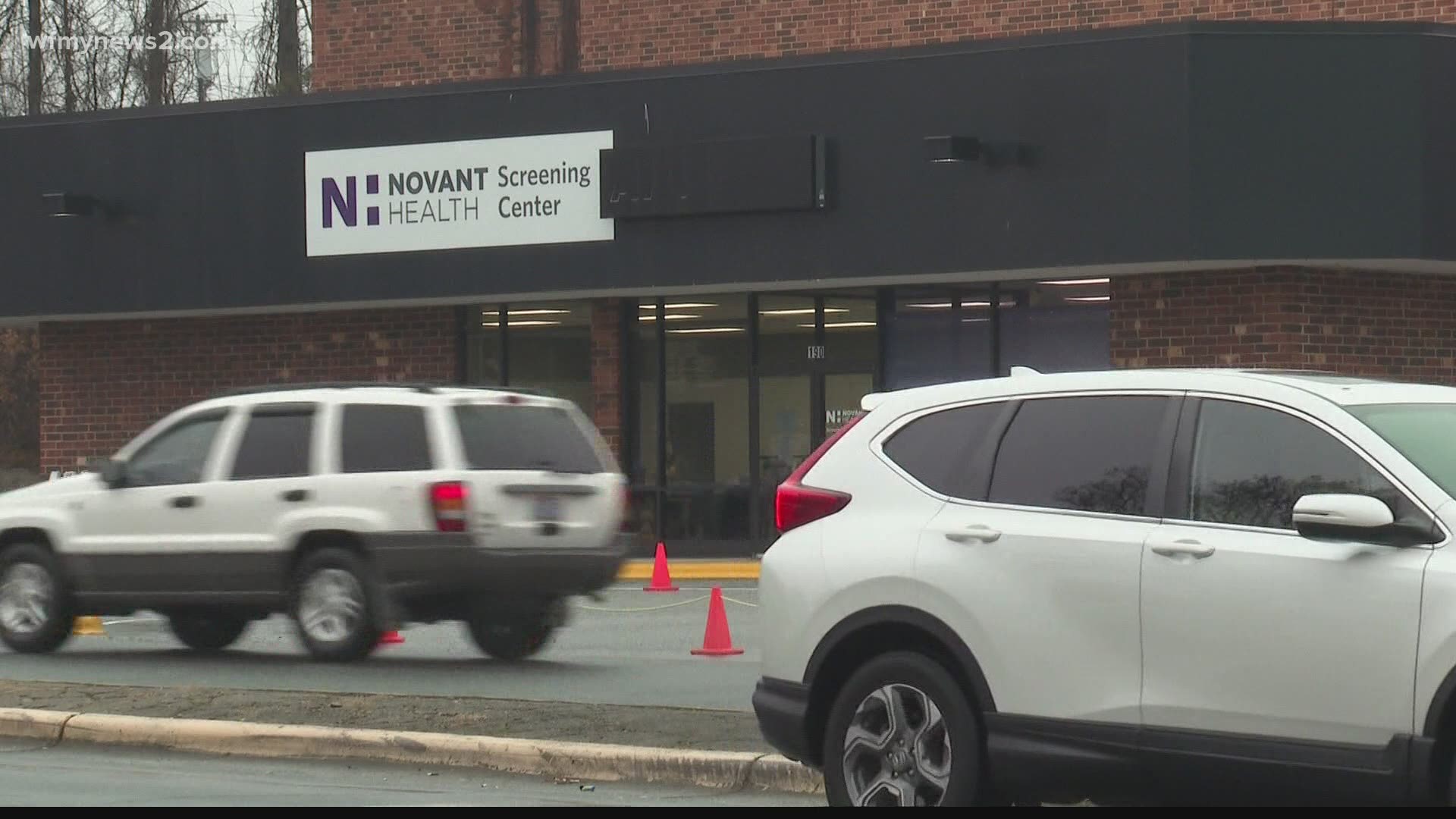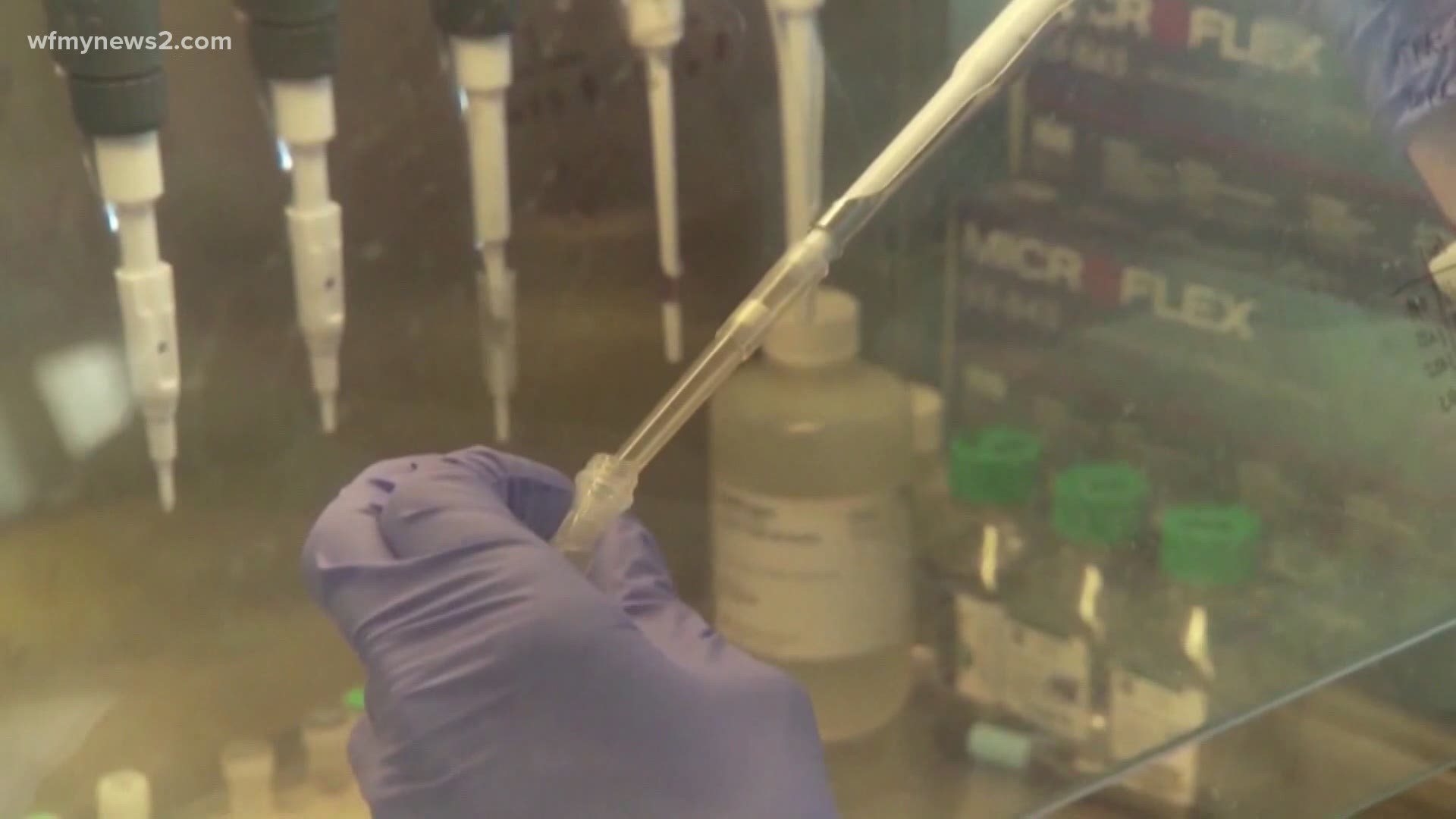GREENSBORO, N.C. — "Are you eligible for the COVID-19 vaccine but opting out? Tell us why."
This question to WFMY News 2 viewers spurred a lot of discussion on our Facebook page - with more than a thousand comments on this single post. Reasons varied, by we narrowed down the top concerns - and took them to an expert: Andre Harvin, Director of Pharmacy for Oncology Services at Cone Health.
Not only has Harvin administered vaccine doses, he's gotten the vaccine himself. He says, he's had many conversations with COVID-19 vaccine skeptics - including his own mother - and believes in carefully listening and understanding perceived problems.
We asked him to tackle the top reasons why people are deciding against the vaccine - to calm some anxiety and stress, to talk facts, not fear.
"There hasn't been enough research, the vaccine feels rushed."
"When we think about the normal development of a normal vaccine - it goes through a very clear but sequential pathway that the FDA will says they have to go through," Harvin said, "It’s going to have research and development, there’s all these aspects in it and then it can go to clinical trial and there are multiple phases of clinical trial...The FDA has to look at the information and they have to approve it to go onto the next phase. Then once all of that is done, you can actually start manufacturing it, and you start to think about marketing. That normal pathway is a number of years."
However, Harvin said, while the COVID-19 vaccine may not have been a years-long process, that doesn't mean the FDA didn't give authorization.
"They still had to approve every single part of the normal pathway that it would take to bring the drug to market except that they did it in parallel. That means they may have started multiple different phases of clinical trials at the same time, but they are still getting that number of days after the vaccine to monitor those patients before it was actually approved by the FDA through their emergency provision for it to be brought to market."
Generally, most vaccines are either a weakened version of the virus itself, or fragmented pieces of the virus, but the COVID-19 vaccine uses a new technology. Harvin said, even though this is a new type of vaccine - an mRNA vaccine - scientists have researched it for decades.
"Pharmaceutical companies said this is really the time for something like mRNA, this is what it was designed for," he said, "We need a very quick resolution. They are very difficult to manufacture - we understand that they have these really tough storage conditions - but they said hey, this is what it is meant for right? We need to get something out very quickly and this is that vector that we’ve researched all these years."
"How do we have a COVID-19 vaccine, but not an effective way to treat other serious illnesses?"
The COVID-19 pandemic brought the world to a screeching halt. In response, the healthcare community as a whole came together to zero in and tackle the virus specifically.
"The other aspect of it is people will say, why don’t we do that for cancer, or why don’t we do that for diabetes? Those are all different kinds of processes," Harvin said, "This is a virus. The way that you go about fighting a virus is unique, and it’s not the same way you can go about fighting cancer or diabetes."
"I don't know what the long-term effects of the vaccine are."
"The way I counter that is I say, we do not understand what the long-term side effects are of the coronavirus. Not yet. But, we do know we can already see that people that contract coronavirus end up having long-term side effects thus far."
Harvin explains, mRNA vaccines are out of the system within 48 hours, after training the cells to recognize COVID-19 and fight it off - creating, then using, your body's own antibodies. Remember, this type vaccine does not contain any coronavirus.
"I already had COVID-19, so I don't need the vaccine."
"We recommend that if you've had COVID, you still come in and get vaccinated," Harvin said.
When you are infected by the coronavirus, Harvin said your body builds up a natural immunity - but it's likely it won't last as long as the COVID-19 vaccine in keeping the virus away.
"The controversy is around the timelines. Here, we are looking at 90 days after you've had COVID, then you might want to look at getting vaccinated."
"I just don't trust the vaccine, or the government, or the systems that distribute the vaccine."
"That's the hard thing, because there's been reasons unfortunately to not trust certain large systems," Harvin said, "There's disparities in healthcare and how it's administered to Black and Brown communities, or how women are treated in healthcare. There are a lot of areas that are just kind of shameful when it comes to our part and what we've done, and some of those wounds haven't healed."
Harvin said - these concerns are valid, but they are asking people to trust them now. One of the best ways - take a look at who got this vaccine first.
"I've actually done the research, I have read through the clinical trials for both Pfizer and Moderna. I very much trusted the body of scientists that were behind it and know that they do not have political motivations," he said, "Then I look at the first line of people who receive the vaccine - they’re people like me. Healthcare providers."
Harvin said it would be counterintuitive to give something potentially harmful to the group of people on the frontlines of the pandemic.
"If this was something that we didn’t trust - that’s probably the last group of people that we would want to give the vaccine to, because they are the ones responsible for caring for these patients," he explained, "We wouldn't introduce something to the people that are so vital in the midst of a global pandemic."
As a general rule of thumb, Harvin said, consider the source of your information and look at stories with a critical eye.
"If you’re specifically searching for, 'tell me something bad about the COVID-19 vaccine,' anybody could post up information on a website and put anything they want out there," he said, "The fight is with two almost invisible enemies. You cannot easily see COVID because it’s a virus - and then the other enemy unfortunately is misinformation. So, both of them are just as deadly - to a degree - and they both spread just as fast."




